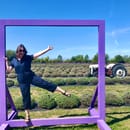When Arkells announced their acoustic project, Campfire Chords, frontrunner Max Kerman declared that while we couldn’t gather for regular concerts, “we still have music in the kitchen, backyards, docks, and campfires.” In making Campfire Chords, the band asked of some of their most popular songs, “Do they pass the campfire test?”
The answer? A resounding yes.
While the album, which was released by Universal Music in August 2020, is comprised almost entirely of acoustic covers of their old songs – Quitting You being the only exception – Kerman said the band did not want Campfire Chords to be another “snooze” acoustic album, but told fans on Instagram that Campfire Chords was a complete re-imagining of the songs within.
As Kerman described it, the album was an opportunity for the band to “rediscover the singer-songwriter spirit that has long informed our most trademark sing-alongs.”
Songs like My Heart’s Always Yours, one of their more plucky, synth-rock sounding songs, becomes a much softer ballad. It’s stripped entirely of all of the elements that make My Heart’s Always Yours one of the band’s most iconic songs, and yet at its core is still the same tender, sweeping declaration of love as Kerman declares, “You know, always yours / My heart’s always yours.”
However, Campfire Chords is certainly not a typical acoustic album. While some songs exist as gentler versions of their previous iterations, tracks like A Little Rain (A Song For Pete) undergo a complete transformation, as Kerman promised they would. With additional vocals by Marla Joy, and a guitar overlay by Aaron Goldstein, the song becomes a stunning gospel refrain, arguably more powerful in its acoustic iteration. Joy’s incredible vocal range brings a depth you didn’t know was missing to lyrics like “and when you’re good / We’ll hit the ground runnin.’”
Formed in 2006 in Hamilton, Ont., Arkells have made reimagining a central feature of their existence, known for the Motown covers they perform without fail at nearly every live show, as well as a strict policy of not adhering to any one style, but rather allowing a huge range of artists and genres to deeply influence their own music.
On Aug. 29, the band debuted their album in a Campfire Chords special as part of the #BudStageAtHome project, a free live stream of the band performing the songs in isolation in northern Ontario. They later released all of the videos on YouTube.
The special featured performances of nine of the album’s 20 tracks, interspersed with videos titled things like “Catch Up” or “Yurt Hang,” and feature Kerman with a few of his fellow bandmates talking about the story behind the song, and the effect of a national lockdown on a band that has made touring and live performances an integral part of their brand.
“We didn’t give ourselves much time to think about this one, which I think sometimes can be good,” bassist Nick Dika tells Kerman while they lob a baseball back and forth between them. “That is generally my philosophy,” Kerman quips back. While these moments feel rather innocuous, to see the band away from the stages and the lights and the recording equipment, stripped down to the basics much like the album itself, is a heartwarming parallelism.
Produced at the height of the coronavirus lockdown, the band was entirely self-reliant in its creation. Dika, Kerman, fellow guitarist and vocalist Mike DeAngelis, and drummer Tim Oxford all recorded their respective parts at home and sent them to keyboardist, vocalist, occasional guitarist, and musical force of nature Anthony Carone. Carone then edited, mixed, and produced all of those pieces into songs, and what would eventually become Campfire Chords, a tribute to those sweet end of summer weekends spent in good company with great music.


